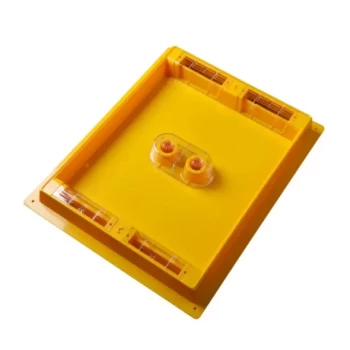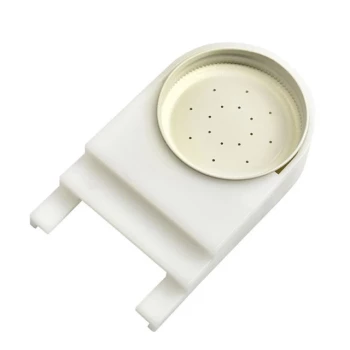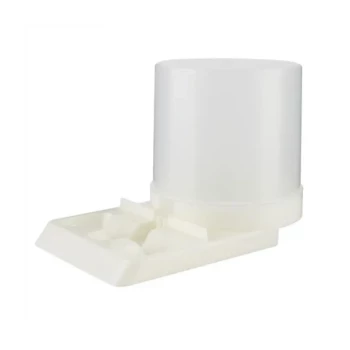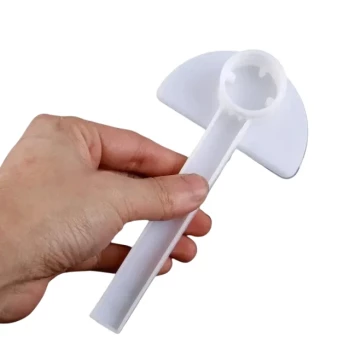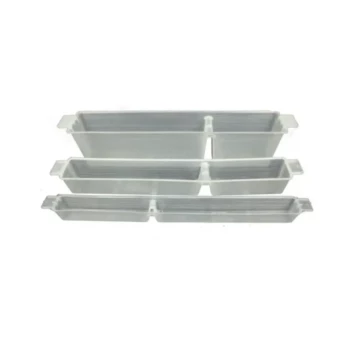Yes, responsible beekeepers always leave honey for their bees. Harvesting all the honey would be a catastrophic failure in hive management, as the bees rely on these stores to survive periods when they cannot forage for nectar. The central goal of a beekeeper is to ensure the colony is strong enough to endure winter and other scarcities, and a key part of that is leaving them with ample food reserves.
A beekeeper's success is directly tied to the health and survival of the colony. Therefore, leaving sufficient honey for the bees is not just an ethical consideration—it is a fundamental requirement for sustainable, long-term beekeeping.
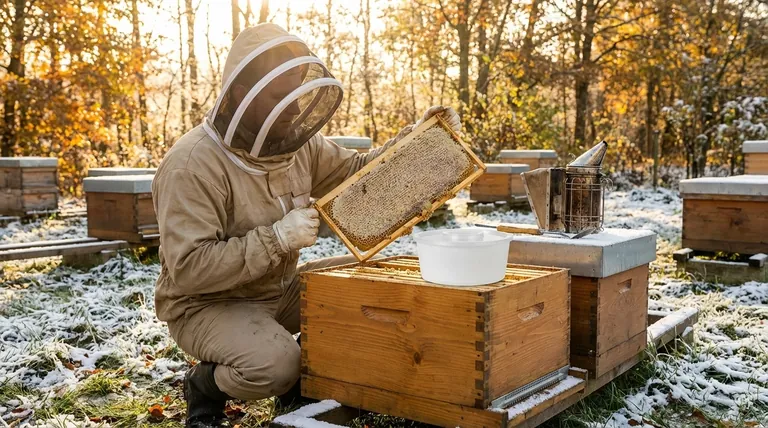
Why Leaving Honey is Essential for the Hive
A honeybee colony is a complex organism that requires a massive amount of energy to survive. The honey they produce is their sole source of carbohydrates, acting as the fuel that powers every aspect of their existence, especially during times of scarcity.
Fuel for the Winter Cluster
Honeybees do not hibernate. To survive cold winter months, they form a tight "winter cluster" inside the hive. By vibrating their wing muscles, the bees in the cluster generate heat, keeping the core temperature around the queen stable. This process consumes an enormous amount of energy, and their only fuel is their stored honey.
Without adequate honey stores, the colony will starve and freeze long before spring arrives.
Bridging the "Nectar Dearth"
Winter is not the only time bees face a food shortage. A "nectar dearth" is any period when there are few or no nectar-producing flowers in bloom, which can happen during a hot, dry summer or a cold, wet spring. During these times, the colony's survival depends entirely on the honey they have stored.
Powering a Healthy Immune System
Nutrition is directly linked to colony health. A well-fed, robust colony is better equipped to fight off diseases, parasites, and pests. Threats like the Varroa mite, one of the greatest dangers to honeybees today, are more likely to overwhelm a colony that is weakened by nutritional stress. Leaving ample honey ensures the bees are strong enough to maintain their natural defenses.
How Beekeepers Manage Honey Reserves
A beekeeper doesn't simply guess how much honey to leave. They use a combination of climate-based calculations, seasonal observation, and, when necessary, intervention to ensure the colony is well-provisioned.
Calculating Winter Stores
The amount of honey a colony needs is region-dependent. A beekeeper in a northern climate with long, harsh winters might leave 60-90 pounds of honey for a single hive. In contrast, a beekeeper in a milder climate may only need to leave 30-40 pounds. Beekeepers learn these local requirements to make informed decisions.
Harvesting Only the True Surplus
Beekeepers only harvest what is considered "surplus" honey. Honey is stored in boxes called "supers" stacked on top of the main hive bodies where the bees raise their young. Experienced beekeepers ensure the lower hive bodies are full of honey for the bees before they even consider taking frames from the upper supers.
The Role of Supplemental Feeding
If a beekeeper miscalculates, the season is unusually poor, or a colony is weak, they will intervene by feeding the bees. This is typically done with a sugar syrup or a solid sugar block called fondant. While this can prevent starvation, it is a corrective measure. Honey contains complex sugars, enzymes, and trace nutrients that are far superior for bee health than simple sugar.
Understanding the Trade-offs: The Risks of Over-Harvesting
Taking too much honey, whether by accident or by greed, is one of the most damaging mistakes a beekeeper can make. The consequences directly undermine the beekeeper's goals.
The Obvious Risk: Starvation
The most immediate danger of over-harvesting is colony starvation. If the bees run out of food during winter or a nectar dearth, the entire colony will perish. This represents a total loss for the beekeeper.
Creating a Weak, Unproductive Colony
A colony that is constantly on the edge of starvation is a weak colony. It will have a smaller population and be less effective at pollinating and producing a surplus of honey in the following season. Paradoxically, taking too much honey one year leads to less honey in subsequent years.
Increased Reliance on Inferior Substitutes
A beekeeper who regularly over-harvests becomes dependent on supplemental feeding. While sugar syrup can keep bees alive, it is not a perfect replacement for honey. A colony raised primarily on sugar water may be less resilient and more susceptible to disease over the long term.
The Principle of Sustainable Partnership
The decision of how much honey to harvest is guided by the beekeeper's core objective: to foster a strong, healthy, and productive colony for the long term.
- If your primary focus is the long-term health of the bee colony: Always err on the side of leaving more honey than you think is necessary, as this is the best insurance for survival.
- If your primary focus is maximizing honey yield: This is best achieved by managing strong, healthy colonies that produce a significant surplus year after year, not by aggressive single harvests.
- If you are facing an unexpected food shortage in the hive: Intervene immediately with appropriate supplemental feeding to prevent colony collapse and ensure their survival.
Ultimately, successful beekeeping is not about extraction, but about a sustainable and responsible partnership with the hive.
Summary Table:
| Key Aspect | Why It Matters for Beekeepers |
|---|---|
| Winter Survival | Bees need honey as fuel to generate heat and survive cold months. |
| Nectar Dearth | Stored honey is the only food source when flowers aren't blooming. |
| Colony Health | Well-fed bees have stronger immune systems to fight disease and pests. |
| Sustainable Yield | A healthy, well-fed colony produces more honey surplus in the long run. |
Ensure your apiary's long-term success with the right equipment.
At HONESTBEE, we understand that the health of your bee colonies is your top priority. Our wholesale-focused operations are designed to support commercial apiaries and beekeeping equipment distributors with durable, reliable supplies that help you manage hives responsibly.
A strong partnership with your bees starts with strong equipment. Let us help you build a more productive and sustainable operation.
Contact HONESTBEE today to discuss your wholesale supply needs and keep your colonies thriving.
Visual Guide
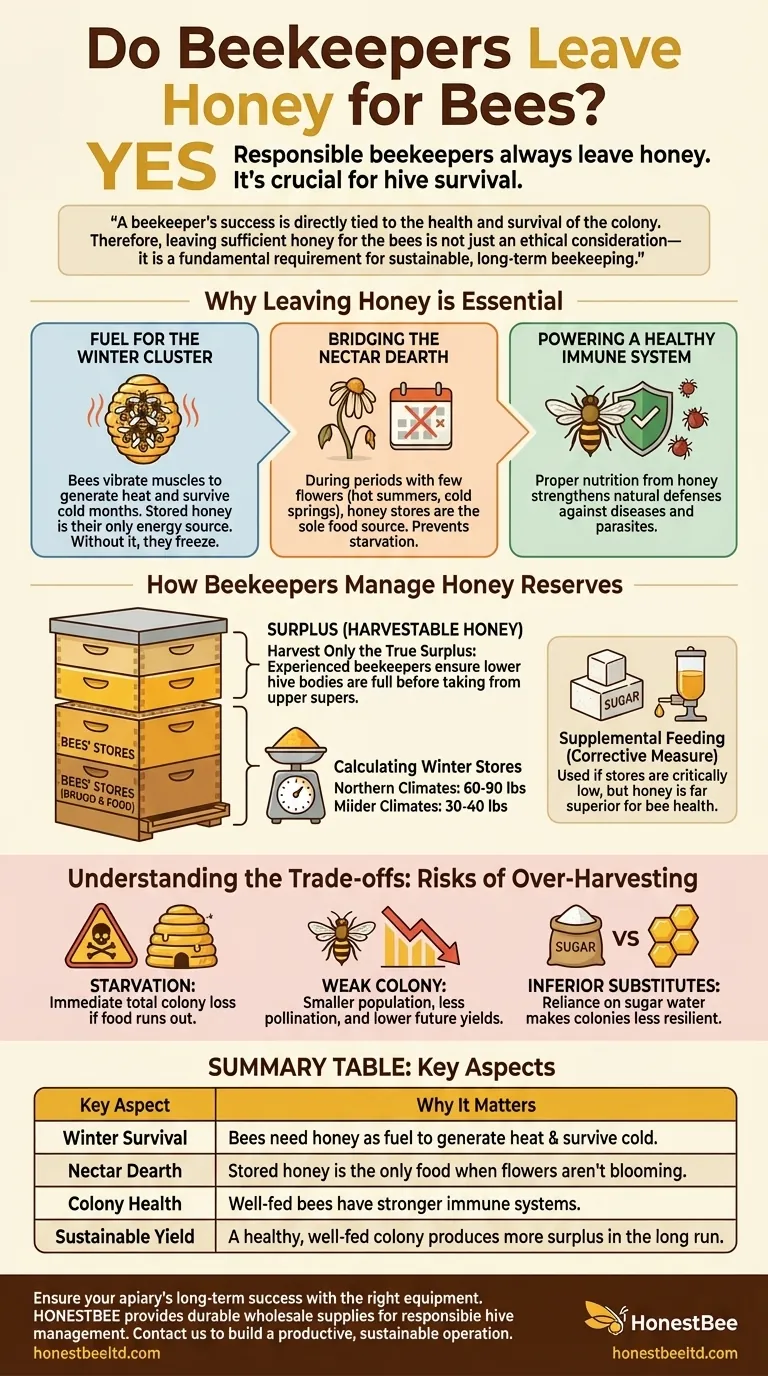
Related Products
- Rapid Bee Feeder White Plastic 2L Round Top Feeder for 8 or 10-Frame Bee Hives
- HONESTBEE Round Hive Top Bee Feeder for Syrup
- Professional Hive Top Bee Feeder for Beekeeping
- HONESTBEE Professional Hive Top Bee Feeder Feeding Solution
- Classic Boardman Entrance Bee Feeder Hive Front Feeding Solution
People Also Ask
- What is the capacity of the round hive top feeder for syrup and pollen? A Guide to Targeted Apiary Support
- How should the round hive top feeder be positioned? Master Internal Feeding for Stronger Colonies
- What is the primary function of hive feeders for new package bees? Boost Colony Survival and Growth
- How much honey does a strong hive need to survive winter? Ensure Your Colony's Survival (60-80 lbs)
- What is the best thing to feed bees? A Guide to Supplemental Feeding for a Thriving Hive


